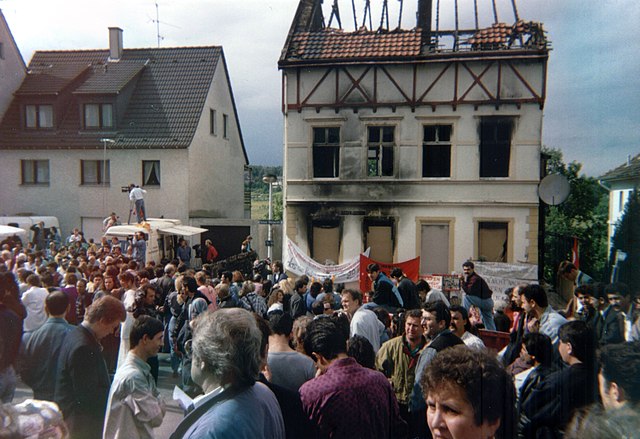Immigration and crime in Germany
Crimes may be committed both against and by immigrants in Germany. Crimes involving foreigners have been a longstanding theme in public debates in Germany. In November 2015, a report that was released by the Federal Criminal Police (BKA) stated that "While the number of refugees is rising very dynamically, the development of crime does not increase to the same extent." Interior Minister Thomas de Maizière (CDU) noted that "refugees are on average as little or often delinquent as comparison groups of the local population." A 2018 statistical study by researchers at the University of Magdeburg using 2009-2015 data argued that, where analysis is restricted to crimes involving at least one German victim and one refugee suspect and crimes by immigrants against other immigrants are excluded, there is no relationship between the scale of refugee inflow and the crime rate. In 2018 the interior ministry under Horst Seehofer (CSU) published, for the first time, an analysis of the Federal Police Statistic, which includes all those who came via the asylum system to Germany. The report found that the immigrant group, which makes up about 2% of the overall population, contains 8.5% of all suspects, after violations against Germany's alien law are excluded.

The 1993 Solingen arson attack resulted in five deaths and 14 injuries.
Rape in Germany is defined by Section 177 of the Criminal Code of Germany. The definition of rape has changed over time from its original formulation in the penal code established in 1871, as extramarital intercourse with a woman by force or the threat of violence. In 1997 laws were amended to criminalize marital rape, incorporate gender-neutral language, and recognize the effect of psychological coercion. In 2016 German laws were rewritten to remove a previous requirement that a victim physically resist their assailants and be overcome by force. The new law recognized any physical or verbal cue that one party does not consent to sexual contact. It also mandated deportation for migrants convicted of sexual assault, made it easier to prosecute rapes committed by groups, and criminalized other types of unwanted sexual contact, such as groping or fondling. The changes followed a series of high-profile cases that sparked public outrage at the inadequacy of the law.

Wir haben Gesichter, in English "we have faces", a monument in Viktoriapark, Kreuzberg, at the site where a woman was raped in March 2002
German language graffiti in Vienna from 2010, reading nein heisst nein, or "no means no"



